The issue of illegal immigration has been at the forefront of President Donald Trump's agenda since his early days on the campaign trail. Now, Congress is being forced to take a stand on the issue. Two major bills are currently in the House, but what's the difference between them?

The Conservative Bill
The first bill, H.R. 4760, better know as the Securing America's Future Act of 2018, was introduced by House Judiciary Committee Chairman Bob Goodlatte (R-VA ), House Homeland Security Committee Chairman Michael McCaul (R-TX), House Judiciary Committee Immigration and Border Security Subcommittee Chairman Raúl Labrador (R-ID), and House Homeland Security Committee Border and Maritime Security Subcommittee Chairwoman Martha McSally (R-AZ.)
The bill will:
• Withhold federal grants from sanctuary cities.
• Strengthen border security by authorizing the construction of a border wall and improve, modernize and expanding ports of entry.
• Provide funding to hire 5,000 Border Patrol Agents and 5,000 Customs and Border Protection Officers.
• Provides DACA recipients with the opportunity to obtain a 3-year legal renewable status.
• End chain migration.
• End the Diversity Visa program.
• Increase the number of green cards available for skilled workers.
• Create a new, workable agricultural guest worker program for America’s farmers and ranchers.
• Require employers to use the E-Verify system to ensure that they hire legal workers.
• Require the use of a biometric Entry-Exit system at all ports of entry.

What Legislators Are Saying About the Bill
Rep. Goodlatte released the following statement about the importance of the immigration bill he introduced:
Recommended
With the introduction of the Securing America’s Future Act we have an historic opportunity to fix our broken immigration system. The only way to reduce illegal immigration is to address both enforcement of our immigration laws in the interior of our country and to secure our borders. This carefully crafted legislation, which is aligned with the White House's immigration priorities, combines enforcement measures and increased border security to enhance public safety, ensure the door remains open to law-abiding immigrants, and restore the rule of law.
Homeland Security Committee Chairman McCaul's believes Congress has a great opportunity before them:
Our current border security and immigration system is failing the American people. For too long drug smugglers, human traffickers, and transnational gang members like MS-13 have exploited our vulnerabilities at our borders. It’s time to end this crisis once and for all. This bill offers common-sense solutions that will finally secure our borders, better support our frontline defenders, strengthen interior enforcement, and get tough on those who break our immigration laws. With this President at the helm, we have the opportunity to provide the security and rule of law our founding fathers intended. I am proud to offer these reasonable solutions with my colleagues and look forward to finally solving these challenges in the near future.
Immigration and Border Security Subcommittee Chairman Labrador explained why the group introduced the bill:
The purpose of our legislation is simple: to help President Trump keep his promise to the American people to fix our broken immigration system. Our bill will modernize America’s immigration system for the next generation, enacting conservative reforms that will make our nation strong. These reforms include authorizing funding for the border wall, stronger interior enforcement, mandatory E-Verify, and ending chain migration and the diversity visa lottery. Our bill will also strengthen our economy and create jobs by transitioning to a merit-based legal immigration system that puts the needs of the American people first.
Border and Maritime Security Subcommittee Chairwoman McSally detailed her reason for co-sponsoring the Goodlatte bill:
Our legislation finally strengthens America’s borders. It moves us towards a merit-based immigration system. It includes funds for necessary infrastructure, interior law enforcement, a biometric exit-entry system, and an e-verify system for employers so that our immigration laws are enforced. It cracks down on sanctuary cities and focuses on public safety of our citizens like Kate Steinle who was killed by a man deported 5 times. And it also puts more boots on the border and supports our Border Patrol Agents and CBP officers on the frontlines. America is the most generous and welcoming nation in the world, and that will continue. But we won’t be taken advantage of any longer. This bill delivers on what the American people want and what our President has requested, and I urge my colleagues to join us and support it.
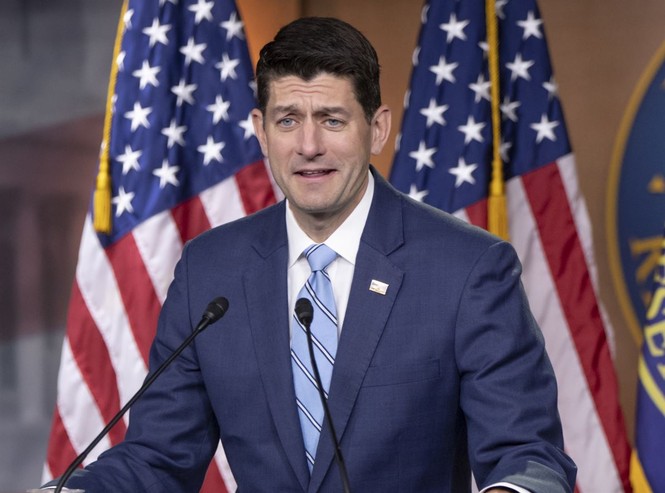
The Moderate Bill
The second bill, H.R. 6136, formally called the Border Security and Immigration Reform Act of 2018 (BSIRA) but more commonly referred to as the moderate or leadership bill, was introduced in the House on Thursday by Rep. Goodlatte. Should the legislation pass, here's what it would do, according to a statement from Goodlatte's office:
• Secures the Border: The bill provides nearly $25 billion in advance appropriations to build a wall along the Southern border. It also combats visa overstays by ensuring the biometric entry-exit program is completed so that we know whether or not those on temporary visas leave the U.S.
Contains More Tools to Prevent Illegal Immigration: The bill ends “catch and release,” increases the standard for credible fear to root out fraudulent claims, ensures unaccompanied alien children are returned safely and quickly to their home country, and provides the Department of Homeland Security (DHS) with the ability to detain dangerous criminal aliens, among their provisions.
Modernizes Our Immigration System: The bill ends the visa lottery, protects the nuclear family while reducing chain migration, reduces overall immigration numbers over the long term, and begins a shift to a merit-based system. It also shifts to a first-in-line visa system by eliminating the per-country cap on employment-based green cards and by increasing the cap on family-sponsored green cards from 7 to 15%.
Provides a Legislative Solution for DACA:
• The legislation allows the DACA population – children who came to the U.S. as minors and grew up here – an opportunity to earn a legal status. If these individuals meet certain requirements they will be eligible for a 6-year renewable legal status, allowing them to work here and travel abroad.
• Once they receive that status, they can use existing paths available to attempt to earn green cards, including through a new merit-based program that allows them (and others brought to the U.S. while children by their parents on H-1B and other visas) to earn green cards based on achieving educational degrees, English proficiency, vocational training and skills, work experience, and military service.
• The bill also requires the border wall to be funded before new visas are available under the new merit-based program.
• Keeps Families Together:
• The legislation fixes a court decision, the Flores settlement, to ensure that children who are apprehended at the border with their parents are not separated from their parent or legal guardian while in DHS custody.
• It also addresses family separation in light of the Zero Tolerance prosecution initiative by mandating that DHS, not the Department of Justice, maintain the custody of aliens charged with illegal entry along with their children. This would only apply to those who enter the country with children and would not permit those charged with felonies or any other criminal activity to be detained along with children. The bill allocates funding for family detention space to facilitate this requirement.
• To enhance the safety of children, the bill prohibits releasing a child to any individual other than a parent or legal guardian.
The bill has been backed by GOP leadership, including Speaker Paul Ryan, Majority Leader Kevin McCarthy, Majority Whip Steve Scalise and House Republican Conference Chair Cathy McMorris Rodgers.
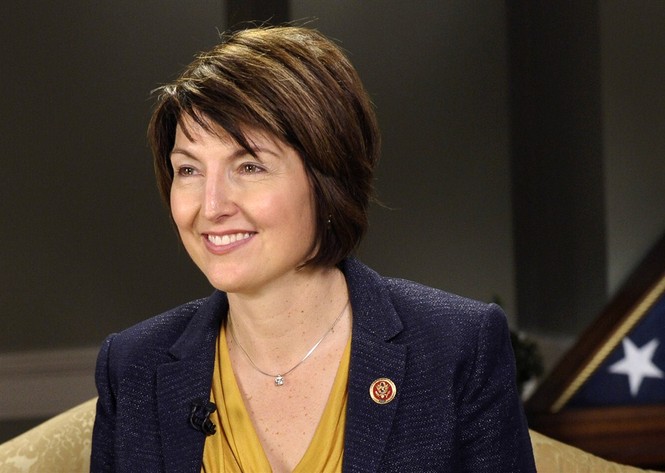
What Legislators Are Saying About the Bill
Rep. Cathy McMorris Rodgers (R-WA) released the following statement on the leadership bill:
...I don’t believe in tearing families apart, but I also believe that people need to be coming to America legally, which is why I support increased border security efforts so families aren’t put in this situation. The new Goodlatte bill that I helped negotiate, the Border Security and Immigration Reform Act, will fix this family separation problem and authorize funding for construction of the border wall, close enforcement loopholes, end catch and release, reform the legal immigration system, create a merit-based visa program, and provide the DACA population a bridge to the legal immigration system and earn legal status in our country.
According to Majority Whip Steve Scalise (R-LA), the Trump administration has been active in the bill-writing process:
We're talking today about the details and clearly Steven Miller and others in the administration have been directly involved in a lot of the discussions and negotiations we've been having. They like what's in the bill and the president really likes the fact that it fully funds the wall.
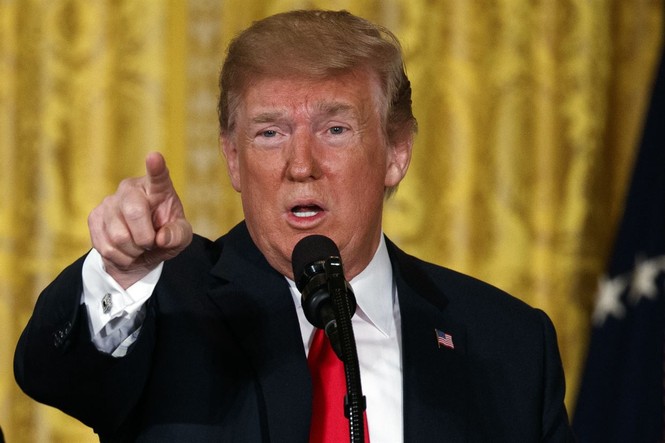
President Trump's Stance on Both Bills
Last week during an interview with Steve Doocy on "Fox and Friends," President Trump said he refused to sign the leadership's compromise bill.
Doocy: I was up on Capitol Hill with Steve Scalise and they were having a leadership meeting and it sounds like they're going to take a vote on a couple different bills on immigration, probably next week. One the Goodlatte bill, the other a moderate. Would you sign either one?
Trump: I'm looking at both of them. I certainly wouldn't sign the more moderate bill.
Doocy: What does the bill have to have?
Trump: I need a bill that gives this country tremendous border security. I have to have that.
Doocy: Does it have to be the wall?
Trump: We have to have the wall. We don't have the wall, there's no bill.
On Tuesday, Trump went on a Twitter rampage about how legislation addressing illegal immigration needs to be passed.
Crime in Germany is up 10% plus (officials do not want to report these crimes) since migrants were accepted. Others countries are even worse. Be smart America!
— Donald J. Trump (@realDonaldTrump) June 19, 2018
If you don’t have Borders, you don’t have a Country!
— Donald J. Trump (@realDonaldTrump) June 19, 2018
Democrats are the problem. They don’t care about crime and want illegal immigrants, no matter how bad they may be, to pour into and infest our Country, like MS-13. They can’t win on their terrible policies, so they view them as potential voters!
— Donald J. Trump (@realDonaldTrump) June 19, 2018
We must always arrest people coming into our Country illegally. Of the 12,000 children, 10,000 are being sent by their parents on a very dangerous trip, and only 2000 are with their parents, many of whom have tried to enter our Country illegally on numerous occasions.
— Donald J. Trump (@realDonaldTrump) June 19, 2018
#CHANGETHELAWS Now is the best opportunity ever for Congress to change the ridiculous and obsolete laws on immigration. Get it done, always keeping in mind that we must have strong border security.
— Donald J. Trump (@realDonaldTrump) June 19, 2018
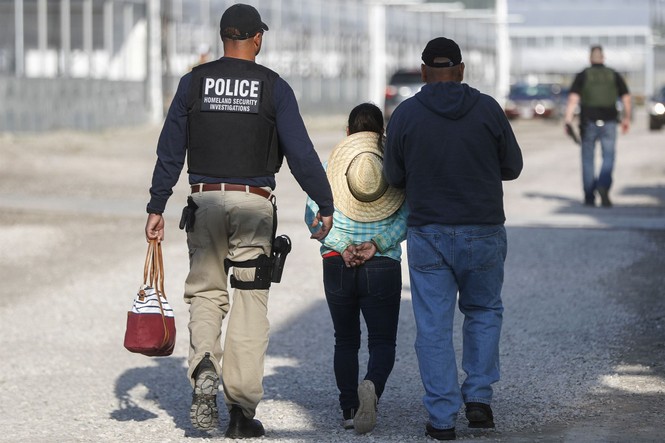
Think Tanks Weigh In
The Federation for American Immigration Reform (FAIR) came out against the leadership bill:
The group also provided Americans with a compassion between the two GOP bills:

Heritage Action also opposes the legislation, primarily because of the bill's amnesty plan.
“While lawmakers fighting to build a national consensus for an immigration policy that works for hundreds of millions of Americans deserve credit, those changes cannot be predicated on codification of amnesty,” Heritage Action Executive Director Tim Chapman told The Hill.
The Migration Policy Institute (MPI), a nonpartisan think tank, came out against both bills based on the principle that asylum seekers would be denied at the U.S.-Mexico border and the number of people who could receive protection under DACA would dwindle.
"The House is set to vote next week on two Republican bills that would largely dismantle the U.S. asylum and protection system at the southern border, even as the Trump administration is drawing significant criticism for enforcement policies that are separating arriving parents from their children, including some seeking asylum," MPI said in a statement.
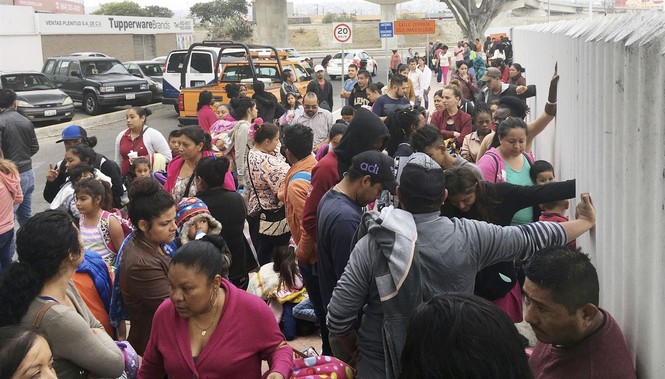
The Major Controversy Between the Bills
The main reason for the controversy between the two bills has to do with DACA and what Congress believes should be done to deal with those who are DACA recipients. On one hand, there's the Securing America's Future Act of 2018, which is seen as the "hardline" immigration bill. This bill provides DACA recipients with temporary protected status and protection for 3-year increments. They're able to renew their DACA status every three years but there is no pathway to citizenship. On the other hand, the Border Security and Immigration Reform Act of 2018, known as the compromise bill, provides DACA recipients with temporary protected status for six years. After year six, those protected under DACA are then eligible for green cards, which gives them a pathway to citizenship.
What do you think of the immigration bills? Do you support one over the other, or does Congress need to go back to the drawing board?
UPDATE: As many predicted, the Goodlatte bill, formally known as the Securing America’s Future Act, failed in the House today. The legislation didn’t even come close to passage, with a 193-231 vote.
A vote on the second immigration bill, commonly referred to as the “compromise” bill, has been delayed until Friday.


